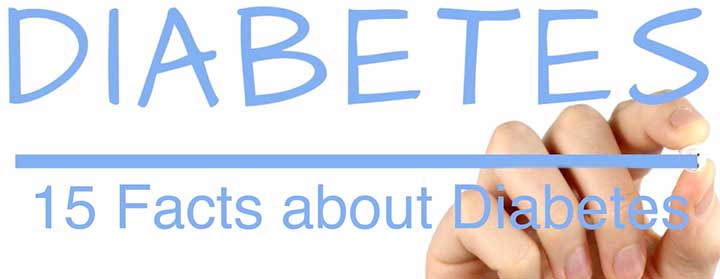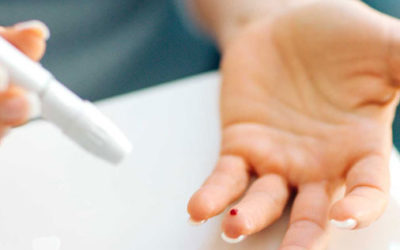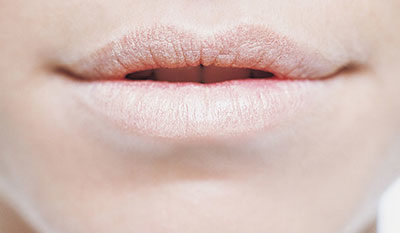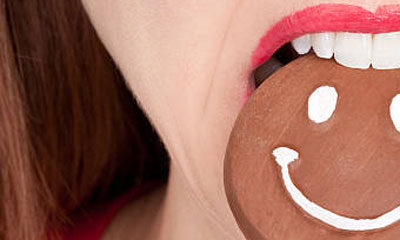There are a lot of facts about diabetes, but you probably weren’t aware of these 15.
You might be wondering why a xylitol website is talking about diabetes. Well we support a healthy sugar free lifestyle, and encourage readers to choose healthy sugar alternatives, like xylitol. Xylitol is a common sweetener for diabetics to use; its first medical use, around 50 years ago, was for diabetics. And we wanted to share a few facts about diabetes that might make those still consuming sugar think twice.
There are at least 3 types of diabetes.
The three types of diabetes are: type 1–where one needs insulin; type 2–where one is often resistant to insulin; and gestational – which happens during pregnancy.
In 2005 alone, over 1 million people died from diabetes.
This number is over 10 years old and it has continued to increase.
About one-third of the people suffering from diabetes don’t know they have it.
You can be tested for diabetes at your doctor’s office. Your doctor can test you for diabetes by doing a simple fasting plasma glucose test or a casual plasma glucose. A fasting plasma glucose test is easy, fairly quick, and the preferred method by professionals.More trustworthy is a measure of your hemoglobin A1C, which is a measure of ones glucose levels over a longer period of time.
The problems of diabetes mostly come from the damage the high levels of glucose do to our blood vessels.
It is the leading cause of blindness in working-age adults.
This is due to the damaged blood vessels in the retinas. Your retinas are what send the images you see to your brain.
Those with diabetes are twice as likely to develop heart disease than those without diabetes.
Like blindness, most heart disease comes from damaged blood vessels.
In the US alone, over 65,000 lower limb amputations were performed because of diabetes.
According to the American Diabetes Association, there were 73,000 non-traumatic lower-limb amputations performed in adults aged 20 years or older with diabetes. This too is caused by blood vessel problems in the legs.
The treatment of choice for type 2 diabetes used to be starvation or semi-starvation before 1921.
From around 1915 to early 1922 starvation or semi-starvation was thought to be the best treatment for diabetes. Even today diabetologists who are interested in prevention, rare as they may be, see the primary prevention of type 2 diabetes as: “diet and exercise, diet and exercise, diet and exercise, and then maybe drugs.” (John Lilienquist MD) While a lower calorie diet is helpful to those who are diabetic and overweight, it is not a recommended treatment for all diabetes.
Type 2 is much more common and accounts for around 90% of all diabetes worldwide.
While both are caused by high levels of blood sugar, there’s a difference between type 1 and type 2. Type 1 is an autoimmune disease, where the body’s immune system attacks the cells in the pancreas that make insulin. Type 2 is multifactorial. Individuals inherit the genes that make them more susceptible, but lifestyle factors like obesity and inactivity also add to it. With type 2 diabetes, the body becomes resistant to insulin.
Scientists predict that by the year 2025, there will be 30 million new cases of diabetes, JUST in China.
Unfortunately diabetes is the fastest growing disease in the world today.
Approximately 90% of people with type 2 diabetes are obese.
Obesity is calculated based on a person’s BMI. If your BMI is between 25-29.9 you are considered overweight, but if your BMI is over 30, you are considered obese.
According to the CDC, diabetes is the 6th leading cause of death in the United States.
Type 1 diabetes cannot be prevented, but there are things you can do to help ward off type 2 or help rid yourself of it. These are lifestyle changes, things like diet and exercise.
According to expert reports, diabetes decreases life expectancy by 5 to 10 years.
Having high blood sugar damages the nerves and blood vessels in the body and wears down other areas.
Men have a higher risk of death from diabetes than women.
A study out of the University of Glasgow in Scotland has suggested that men are more biologically susceptible to diabetes.
Approximately 17 million United States residents have been diagnosed with diabetes, which is nearly 10% of the diabetics in the world.
According to the CDC, that number is growing.
There is an estimated 170 million people suffering from diabetes worldwide.
According to a CBS News report, 371 million people have diabetes globally, but 187 million do not know they have the disease.
If you want to do something about your diabetes, any of the three types, you just might benefit from switching from table sugar to xylitol. A study in diabetic rats showed that all of their lab markers as well as their pancreases improved on xylitol. Xylitol does not require insulin to get into the cells and is there changed into glycogen, which is easily changed into glucose when it is needed, again without insulin.
Before doing this on your own discuss it with your doctor. Copy and take this with you because it is not likely your doctor will know anything about it.
Related Articles
Indoor air pollution solutions
Breathing Easy Indoors By Jane Wooley. Think pollution is all about filthy air outdoors? You’d be wrong. In recent years, more and more scientific evidence has shown that it’s actually the air inside our homes and buildings that are the most seriously polluted....
Keep your Nose Clean
by Jane Sandwood Every day you breathe up to 30,000 times. Now imagine you’re breathing in polluted air. When we think of toxins in the air, we immediately think of our lung health. But your nose is the first organ that has to deal with polluted, harmful air. Even...
What is Xylitol?
What is xylitol? Well it is pretty amazing, if we do say so ourselves. It is an alternative sweetener that has been popular in food products since the 1960s. On top of being a sweetener, it has shown to have a significant reduction in cavities when used...
Is Xylitol Good for Diabetics?
Let’s first talk about what xylitol is. Xylitol is a sugar alcohol. The suffix “itol” is how you can most often identify a sugar alcohol. Ironically, sugar alcohols are neither sugar nor alcohol. They are basically water-soluble solids found in plants and...
How to Relieve of Dry Mouth with Xylitol
What is Dry Mouth and What Causes It? Dry mouth is caused by the salivary glands in the mouth not performing properly, or, more commonly, by mouth breathing secondary to nasal congestion. Poor salivation can be caused by medications, cancer treatments,...
Prevent Tooth Decay with Sweets
Did you know your sweet tooth could actually make your dentist happy? And we don’t mean because you’ll be paying them to fix your cavities, we mean, you could stop having cavities. It’s true; a sweetener can be the answer to your dental health problems. Xylitol is a...









